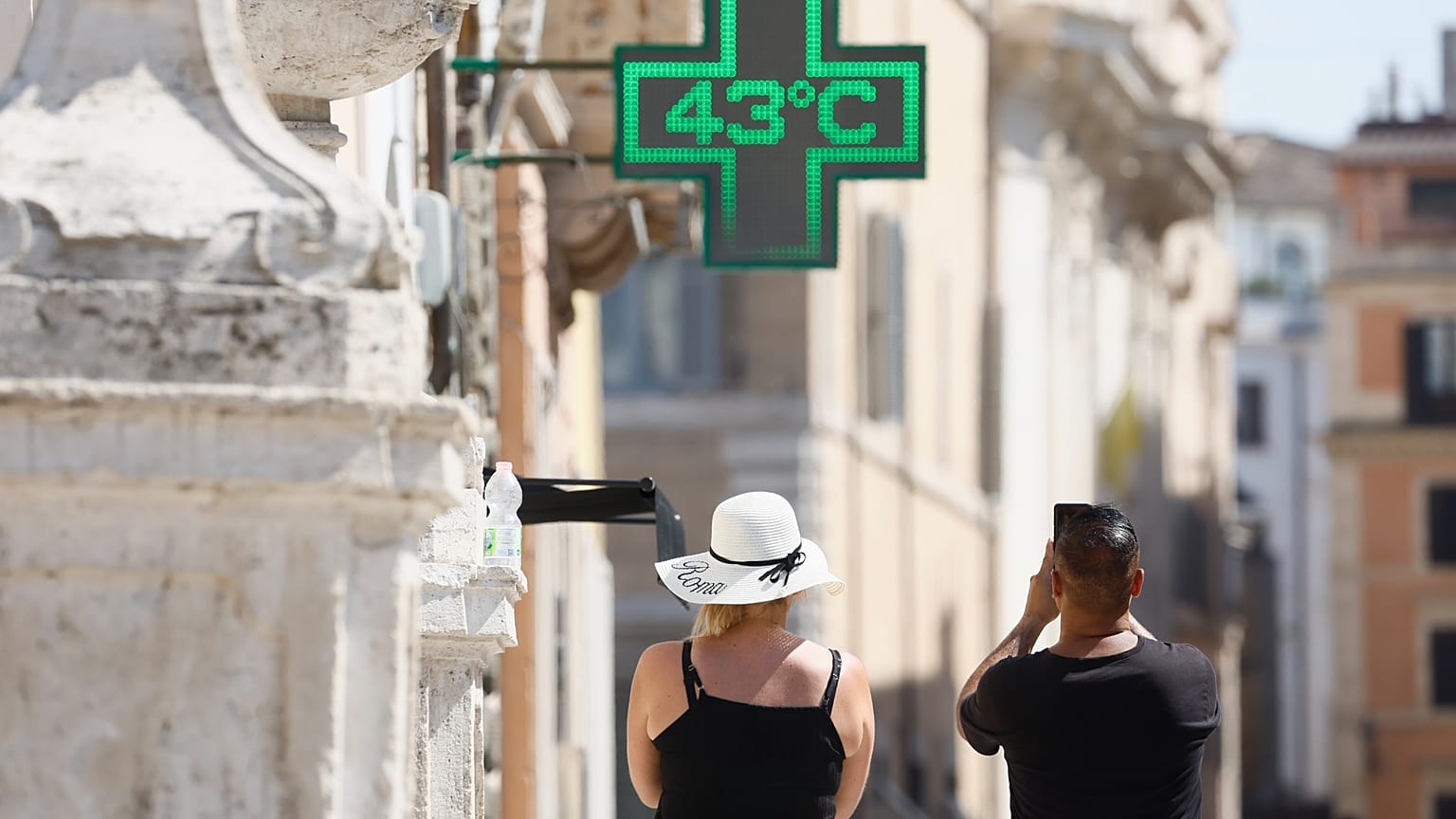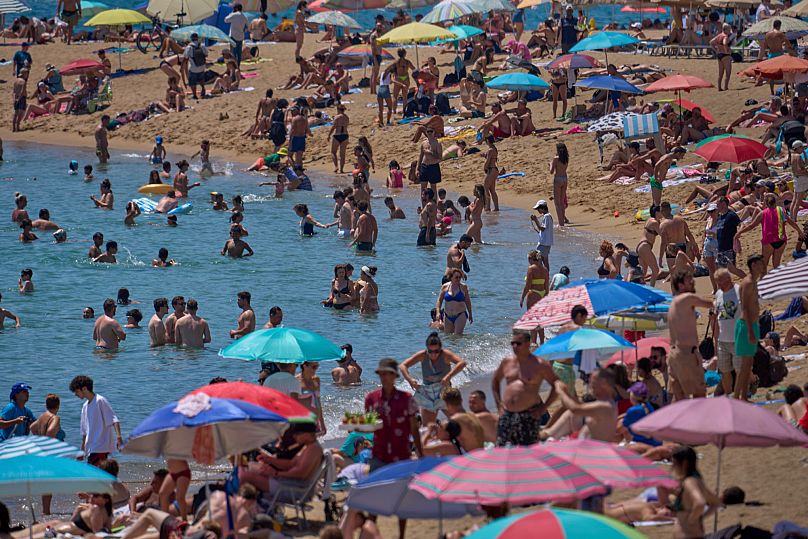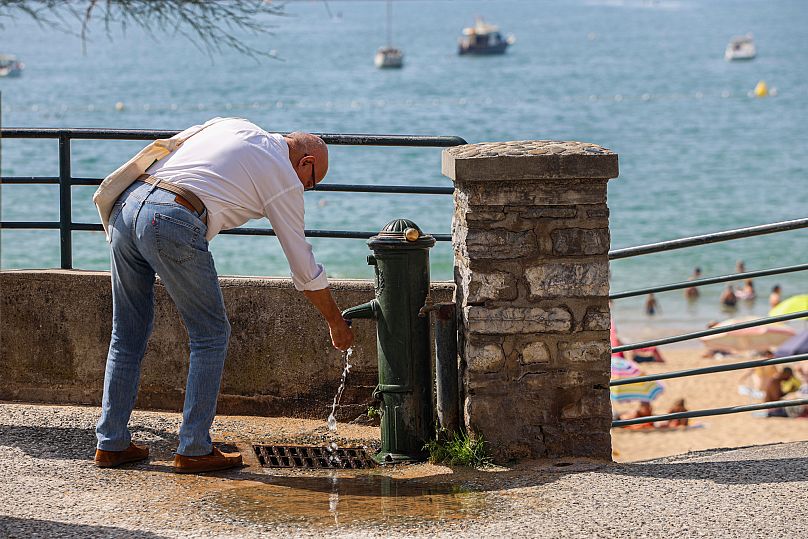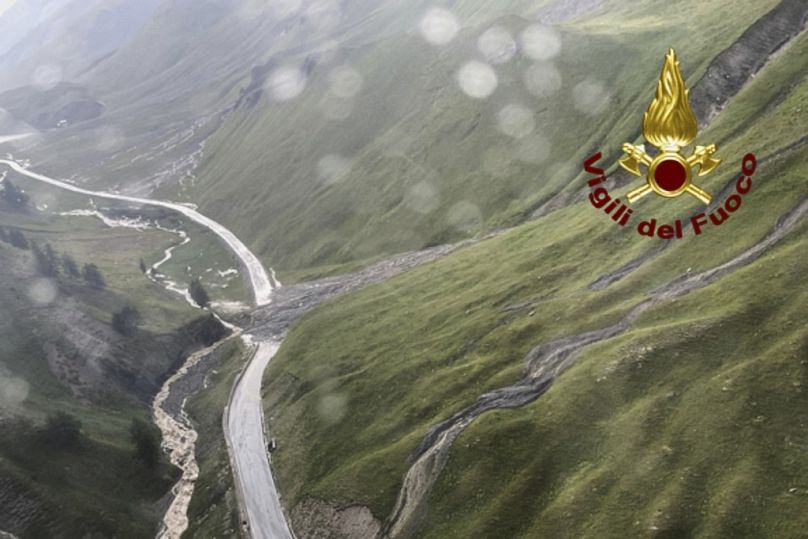Portugal, Spain, France, and Italy were some of the worst hit countries, with temperatures reaching over 40 degrees Celcius.
A severe heatwave gripped Europe over the past seven days, triggering widespread heat alerts in many countries across the continent.
Portugal, Spain, France and Italy were among the worst-hit countries, with temperatures reaching over 40 degrees Celsius.
According to a 2024 report by the EU's Copernicus Climate Change Service, Europe is the continent with the fastest-rising temperatures on Earth, having warmed twice as fast as the global average since the 1980s.
Portugal
Temperatures were forecast to hit 43 degrees Celsius, prompting authorities to issue a red heat warning for seven out of 18 districts.
The seven districts recorded the highest maximum temperature ever in the country in June, with the inland town of Mora, west of Lisbon, registering a record-high temperature of 46.6 degrees Celsius on Sunday. The previous record was 44.9 in 2017.
While mainland Portugal was battling with a heatwave, a rare roll cloud surprised many sunbathers when the dense "tsunami"-like cloud hit several beaches along the Portuguese coast on Sunday.
Portugal seems to have seen its worst, with temperatures stabilising again. Lisbon was forecast to reach 33 degrees Celsius, which is normal for this time of the year.
However, some inland areas could still experience peaks of 43 degrees Celsius.
Spain
Barcelona recorded its hottest month of June in a hundred years, since 1914, Spain's national weather service said on Tuesday.
The Fabra Observatory, situated on a hill overlooking the city, recorded an average temperature of 26 degrees Celsius, surpassing the previous hottest June average in 2003, which stood at 25.6 degrees Celsius.
While Spain is not unfamiliar with soaring temperatures, Barcelona is usually spared due to its location between the hills and the Mediterranean.
Meanwhile, in Zaragoza and Bilbao, temperatures were nine degrees higher than the seasonal average.
And the southern province of Huelva recorded a record temperature of 46 degrees Celsius on Saturday. Sunday's national average of 28 degrees Celsius set a new record temperature for that day since 1950.
Temperatures are expected to remain high until Thursday, the country's national weather service said.
France
Also in France, 16 departments were put under the highest red alert by the national Weather agency Météo-France, and 68 others under an orange alert, French Prime Minister François Bayrou said on Tuesday. The Paris region, in particular, was one of the hardest-hit areas.
"We are tracking the risks and the precautions being taken," Bayrou said. "Fortunately, Météo-France tells us the situation may improve in the coming days."
Due to a lack of rain in June and the month's soaring temperatures, the weather agency has also warned of an increased risk of wildfires.
Temperatures are expected to soar further on Tuesday. More than 1,300 schools will be partially or fully closed, the Education Ministry said.
The summit of the city's famous landmark, the Eiffel Tower, will remain closed until Thursday. Visitors with tickets were requested to postpone their visits.
Extreme summers will become more likely and prevalent in the future, climate experts warned.
France could be up to 4 degrees Celsius warmer by 2100, with temperatures exceeding 40 degrees Celsius, and potential heat spikes of 50 degrees Celsius every year, according to their research.
Italy
Seventeen out of 27 major Italian cities were experiencing a heatwave, according to the southern European country's Health Ministry.
In a city near Bologna, a 46-year-old man died after he had collapsed while repaving a school parking lot, public broadcaster RAI reported. An autopsy is still under way, but heat was suspected to have caused the man to collapse.
Meanwhile, Italy's north was struck by torrential rains on Monday, and parts of Bardonecchia near Turin were covered in sludge, and landslides hit roads after the Frejus river burst its banks.
Recent reports show that Italy's capital Rome — where the temperatures have consistently stayed above 35 degrees Celsius for weeks now — is one of the country's most affected by rising temperatures over the last 50 years.
Belgium
In Belgium, many trains are cancelled from Monday to Wednesday, according to the rail operator SNCB's website.
Roughly 20 P-trains, which usually only run during rush hour to and from Brussels, were cancelled to avoid overhead lines from overheating. Additional teams were dispatched in the case of train breakdowns.
The rail operators warned passengers to avoid taking the train during rush hour or to work from home, if possible, and to carry sufficient water. Free water fountains were made available at all major stations.
"With this type of heatwave and extreme weather conditions, you can't rule out a breakdown in the railway equipment, It's true that there can be problems with catenaries, with rails that can swell (...) there can also be problems with air conditioning," SNCB spokesperson, Vincent Bayer, said.
"The aim is to prevent this and to do everything possible to ensure that the journey is as comfortable and safe as possible."


















